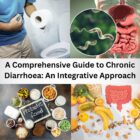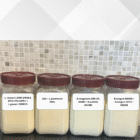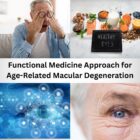Functional Medicine Approach for Cervical Cancer
Cervical cancer remains a significant global health challenge, with over 600,000 new cases diagnosed each year, making it the fourth most common cancer among women worldwide. Despite advancements in traditional treatments, many patients seek holistic approaches to complement their care. Integrative strategies that encompass lifestyle, nutrition, and mental well-being play a crucial role in enhancing overall health and resilience during treatment. Functional medicine offers a personalized framework, addressing the root causes of disease and optimizing wellness. In this blog, we explore how this innovative approach empowers those navigating the journey of cervical cancer.
Understanding Cervical Cancer
Cervical cancer originates in the cervix, the lower part of the uterus, and is primarily caused by persistent infection with human papillomavirus (HPV). While most HPV infections are harmless and resolve naturally, certain high-risk strains lead to cellular changes known as dysplasia. If left untreated, these abnormal cells may progress to invasive cervical cancer over time.
Several key risk factors contribute to the likelihood of developing cervical cancer. Early sexual activity and having multiple sexual partners increase the risk of HPV exposure. Environmental carcinogens, such as tobacco smoke and chemical pollutants heighten vulnerability. Other factors, like a weakened immune system and long-term use of oral contraceptives, also play a role. Understanding these dynamics is crucial for prevention and early intervention, empowering individuals to take proactive steps in managing their cervical health

The Functional Medicine Model for Cervical Cancer
Comprehensive Assessment
A thorough health history is essential for understanding each patient’s unique context. This includes:
- Identifying Individual Risk Factors: Detailed sexual history, environmental exposures (like toxins), and family cancer history help pinpoint vulnerabilities.
- Monitoring Biomarkers and Pathology: Regular assessments of biomarkers, such as HPV status and inflammation markers, enable real-time treatment adjustments.
Optimizing Treatment Efficacy
Integrative therapies significantly enhance traditional cancer treatments:
- Role of Integrative Therapies: Nutrition and natural medicines support overall health and reduce side effects.
- Coordination with Oncologists: Ensuring safety and efficacy through collaborative care with oncologists maximizes treatment outcomes.
- Nutrition Focus: Emphasizing antioxidants and anti-inflammatory foods helps combat cancer cell growth and supports recovery.
Managing Symptoms and Side Effects
Nutritional support plays a vital role in addressing deficiencies:
- Mental Health Tools: Tools like the Distress Thermometer aid in monitoring emotional well-being, offering resources for stress management.
Enhancing Immune Function
Immune modulation strategies are crucial for bolstering defenses:
- Dietary Changes and Supplements: Incorporating immune-boosting foods and targeted supplements significantly improves resilience.
- Lifestyle Modifications: Regular physical activity and adequate sleep are foundational to a robust immune response.
Supporting the Microbiome
Gut health is integral to immune function:
- Assessment of Dysbiosis: Identifying and correcting microbiome imbalances enhances overall health.
Personalized Treatment Plans
Collaboration across disciplines ensures comprehensive care:
- Effective Communication Templates: Streamlined communication among healthcare providers facilitates coordinated and personalized treatment strategies.
Factors Influencing Cervical Cancer Risk and Treatment Strategies
Several key factors significantly influence cancer risk and the effectiveness of treatment.
Obesity has been linked to an increased risk of various cancers, including cervical cancer, by promoting chronic inflammation and hormone imbalances.
Circadian disruption—often caused by irregular sleep patterns, it negatively affects gene expression and cellular repair processes, potentially facilitating cancer progression.
Chronic stress plays a critical role in cancer risk by driving inflammation and suppressing immune function, which is essential in the body’s ability to fight cancer cells.
Disruptions in the microbiome have also been shown to impact HPV persistence, a primary cause of cervical cancer. A healthy microbiome supports immune function and helps clear infections. It has been seen lower lactobacillus populations specially lack of l.crispatus, higher pH, elevated snethia species
Pelvic inflammatory disease: Chronic inflammation of the cervix, which is a result of cervico vaginal pathogens, leads to conditions like PID and bacterial vaginosis (BV), both of which are associated with persistent HPV infection and cervical cancer development.
Infectious exposure: Some viruses contain oncogenes, which, when inside human cells, can drive sustained proliferation. It activates proto-oncogenes within the human cell, increasing their expression while also inhibiting tumour suppressor genes.
Dietary choices further influence cancer risk; for example, a Western diet high in processed foods contrasts sharply with a Mediterranean diet, rich in fruits, vegetables, and healthy fats, which has been associated with lower cancer rates.
Finally, genetic factors interact with environmental influences, shaping individual risk profiles. Understanding these interconnections is vital for developing personalized treatment strategies that address each patient’s unique risk factors and enhance overall health outcomes.
Treatment Priorities for Cervical Cancer
Enhancing treatment outcomes for cervical cancer involves a multifaceted approach.
Stimulating Anti-Tumor Immunity: Boosting the body’s immune response helps recognize and eliminate cancer cells. Immunotherapies and IV nutrition can be effective.
Reducing Chronic Inflammation: Chronic inflammation is linked to cancer progression. Integrating anti-inflammatory diets and lifestyle changes mitigates this risk.
Managing Treatment-Related Side Effects: Addressing side effects from therapies—such as nausea, fatigue, and pain—is vital for maintaining quality of life. Supportive care and symptom management enhance patient comfort.
Ensuring Nutritional Support: Adequate nutrition is crucial for recovery. A balanced diet rich in essential vitamins and minerals supports overall health and healing. Boosting anti-inflammatory and alkaline rich food.
Increasing Antioxidant Capacity: Antioxidants combat oxidative stress and protect against cancer cell proliferation. Foods high in antioxidants should be emphasized.
Minimizing Immune Dysfunction: Strategies to enhance immune function, including stress management and regular physical activity, are essential.
Providing Psycho-Oncologic Interventions: Addressing mental health through counseling and support groups helps patients cope with the emotional challenges of cancer treatment, fostering resilience and better outcomes.
Treatment Recommendations for Cervical Cancer
Incorporating specific supplements enhances the treatment of cervical cancer and supports overall health.
AHCC™ and Ginger: These natural compounds are recognized for their immune-boosting properties. AHCC™ (Active Hexose Correlated Compound) is derived from mushrooms and has been shown to enhance immune function and reduce treatment-related side effects. Ginger, particularly its gingerol compounds, helps inhibit infections and alleviate nausea often associated with chemotherapy.
Specialized Pro-Resolving Mediators (SPMs): These molecules play a critical role in managing inflammation and promoting resolution of inflammation, which is essential for optimal immune function.
Highly Bioavailable Palmitoylethanolamide (PEA): PEA is known for its pain relief and neuroprotective benefits, making it valuable in managing treatment-related discomfort.
Immune Function Support: Key nutrients like Zinc, Vitamin C, and Vitamin D3 are vital for maintaining a robust immune response. They help in wound healing, reducing inflammation, and supporting overall immunity during cancer treatment. Integrating these supplements creates a comprehensive strategy for enhancing patient outcomes.

Dietary and Lifestyle Recommendations for Cervical Cancer
Adopting a holistic approach is crucial for cervical cancer management, starting with a wholefood, plant-based diet. This diet emphasizes fruits, vegetables, whole grains, legumes, nuts, and seeds, providing essential nutrients and antioxidants that help combat inflammation and support immune health.
Exercise recommendations include regular physical activity, such as walking, yoga, or resistance training, which enhances overall well-being, reduces fatigue and improves mood. Aim for at least 150 minutes of moderate exercise per week, tailored to individual capabilities.
Improving the circadian rhythm is vital for health, as consistent sleep patterns support hormonal balance and immune function. Establishing a regular sleep schedule and reducing screen time before bed enhances sleep quality.
Psycho-oncology integrates mental health support into cancer care, recognizing the emotional challenges patients face. Access to counseling, support groups, and stress management techniques like mindfulness significantly improve emotional resilience, making it an essential component of comprehensive care. Together, these recommendations foster a healthier, more balanced lifestyle during treatment.
Topical Treatments for Radiation-Induced Dermatitis
Radiation-induced dermatitis is a common side effect of cancer treatment, but several natural options help soothe and heal the skin.
Calendula is known for its anti-inflammatory and wound-healing properties. Applying calendula ointment promotes skin regeneration and reduces irritation.
Green tea contains polyphenols that have antioxidant and anti-inflammatory effects. Topical applications or compresses made from brewed green tea can alleviate redness and discomfort.
Manuka honey, prized for its antimicrobial properties, helps maintain moisture and creates a protective barrier on the skin. Its natural healing capabilities speed up recovery and prevent infection.
Gotu Kola is renowned for enhancing collagen production and improving skin elasticity. Topical formulations containing gotu kola extract promote healing and minimize scarring.
Incorporating these natural remedies into skincare routines can provide effective relief from radiation-induced dermatitis, supporting overall skin health during treatment.









